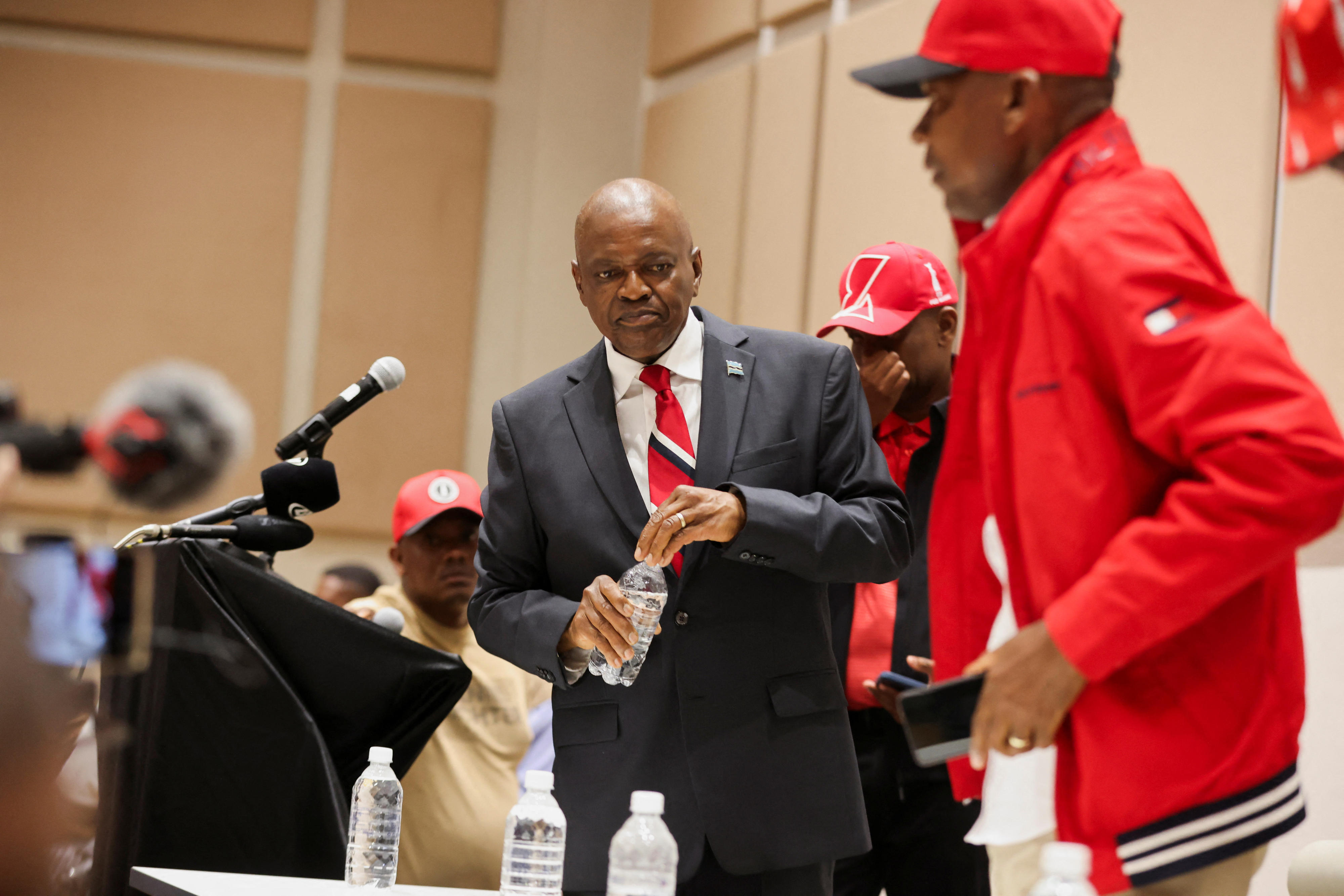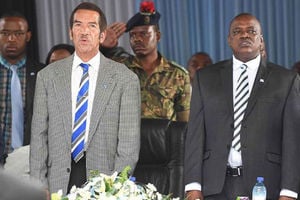
Mr Muniini K. Mulera
Dear Tingasiga:
The seismic shift in Botswana’s political landscape last week is, so far, the most positive political development in Africa this year. Botswana, whose celebrated democracy had been backsliding in recent years, is born again. It has passed the essential test of democratic consolidation, namely, a peaceful transfer of power to an alternative party.
The resounding victory of Botswana’s Umbrella for Democratic Change (UDC) and its leader, Duma Boko, was sweetened by President Mokgweetsi Masisi’s very prompt and graceful acceptance of defeat. In conceding defeat, Masisi told his country that he would cheer and support his new president.
It was a class act by a man whose political weaknesses and failures had not corrupted his democratic credentials. For his part, Boko accepted his elevation to the presidency with refreshing humility. With evident sincerity, Boko pledged that he would do everything “not to fail, not to disappoint.”
He laid himself bare to criticism, “even if it is acerbic and fierce and vicious.” He will “listen and heed and try always to do what is right for the people and for their country.” He wants an engaged citizenry and expects that the citizens will be “enraged so that the leadership pays attention.”
This dramatic change was possible because Botswana’s democratic institutions were carefully nurtured by its leaders and citizens, within a culture that successfully married traditional governance systems with western democratic practice.
The recent backsliding, including abuse of people’s human rights, was no match against a determined, politically conscious and engaged citizenry that politely tossed out the Botswana Democratic Party (BDP) which had ruled the country since independence 58 years ago. These are citizens that did not need lectures on patriotism.
The Batswana did not need the financial bribery and psychological manipulation practiced in countries whose unpatriotic rulers offer lies and trinkets to gullible, impoverished citizens that gladly sell their votes in exchange for cash, soap and salt. To celebrate with the Batswana, I have spent hours listening to and reflecting on their national anthem. Like most African national anthems, the Republic of Botswana’s “Fatshe leno la rona” (Blessed this Noble Land) stands tall among the world’s most musically sweet national songs.
However, unlike most African national anthems, that of Botswana has not been betrayed by the Batswana and their leaders. Its lyrics summarize the ethos that undergirds Botswana’s politics, her people’s way of life, and a shared vision and journey. Usually sang in Setswana, the anthem’s English translation helps us understand the power of words as an inspiring guide.
Its two stanzas and chorus are a sermon gifted by the Rev. Dr. Kgalemang Tumediso Motsete (1899-1974), its composer, to the descendants of his generation. It is a guiding compass into the future of a country that was once described by a departing colonial administrator as “a useless piece of territory.”
Dr. Motsete wrote: “This land of ours, Is a gift from God, An inheritance from our forefathers; May it always be at peace. Awake, awake, O men, awake! Arise, O women, arise! Be energized, Let us work together to serve, Our land. // Beautiful name of fame, Of the nation of Botswana, Through harmonious relations and reconciliation, Bound together. Awake, awake, O men, awake! Arise, O women, arise! Be energized, Let us work together to serve, Our land.”
The history of Botswana’s anthem contains the secret of that country’s social, economic, and political success. The anthem’s composer was a co-founder and leader of the Botswana People’s Party (BPP), the main opposition political party at the time of the country’s pre-independence elections in 1965.
An educationist who had obtained degrees in music and divinity from the United Kingdom, Dr. Motsete was an opponent of the British Protectorate’s rulers, and of Sir Seretse Khama, the leader of the Botswana Democratic Party who became the independent country’s first president.
In many, perhaps most, African countries, Dr. Motsete’s proposed national anthem would not have been considered among the seven that were submitted. Not so in Botswana. Sir Seretse Khama himself chose his political opponent’s musical score and lyrics on merit, because “he wanted an anthem that was enduring and would transcend the political spectrum, so that it would not be changed when another political party assumed power in the future.”
Thus, the circumstances of the adoption of Botswana’s anthem were as prophetic as its lyrics about the future path of tolerance, merit above nepotism, and national interest above the ruler’s pursuit of personal power and prestige. It is not surprising then, that that “useless piece of territory” became an upper middle-income country, one whose citizens are independent, free and justifiably proud of the journey they walk.
One thinks about Uganda’s national anthem at this moment. This musical masterpiece, which George Wilberforce Kakoma (1923-2012) wrote and completed in one day, never fails to trigger strong emotions every time I listen to it or sing it. We can only imagine what adult Ugandans felt when they first sang the words of our anthem on Tuesday October 9, 1962. I was one of those who sang the anthem that day, uttering words whose meaning I did not understand, but whose melody was most uplifting to the spirit of this primary four kid at Kihanga Boys Primary School in Mparo, Rukiga, Kigyezi.
Six decades later, disunited Ugandans remain politically imprisoned in a captured state. They are told that they are free to support the ruler. They are not free to peacefully retire him. They are free to give their love and labour to produce wealth for the benefit of a select group and their foreign partners. They are not free to decide whom to sell their coffee.
They are free to enrich a tiny clique and its foreign partners that operates through government-controlled agencies. They are free to pay for the luxurious lifestyles of the ruling elite. They are not free to demand better than the crappy social services that are no match for what the colonial state offered its subjects. Uganda’s rulers and their courtiers faithfully stand up as the national anthem is played, even as their armed gangs harass, incarcerate and even murder their political opponents.
They sing Kakoma’s great ode to freedom and liberty, to celebrate their fraudulent “re-election.” Citizens stand at attention, sing their anthem and cheer their rulers while their fellow countrymen are denied freedom, and while the rulers steal from them. The anthem is mocked, blasphemed and betrayed by its self-styled custodians.
The more reason why one celebrates the news from Botswana, whose leaders and people continue to fulfil the hopes enshrined in their glorious national song.





